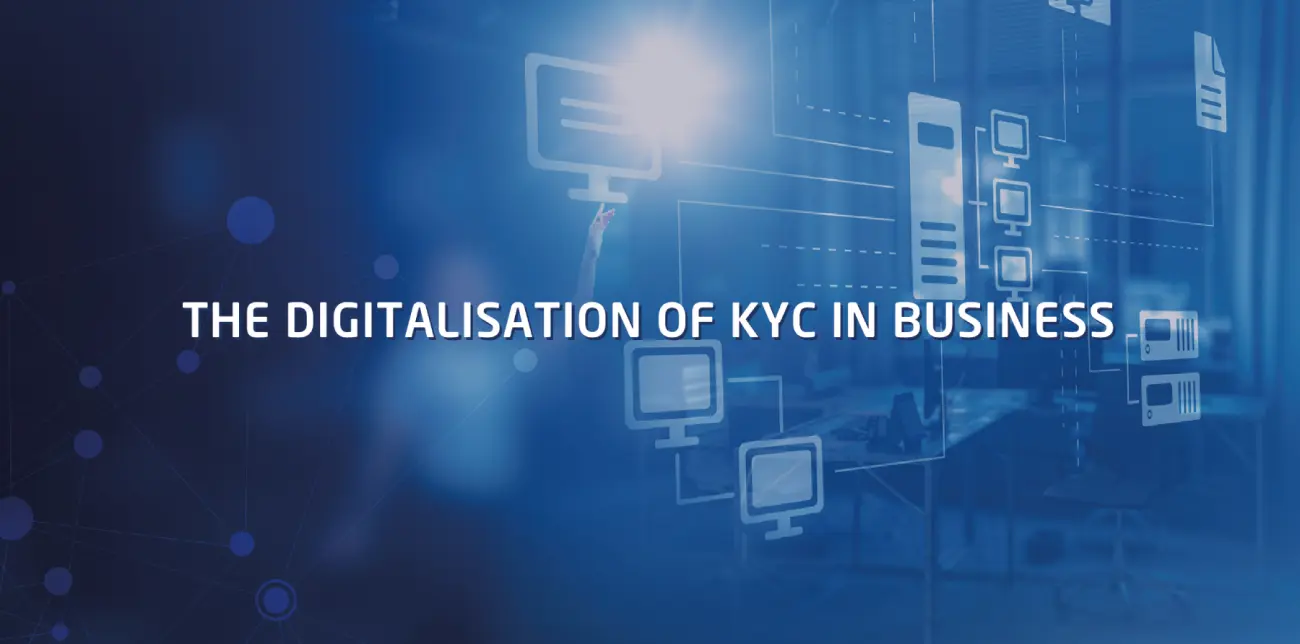
The future belongs to businesses that realise the significance of digital transformation. Online presence is becoming more important than ever and manual processes are looked upon as a barrier stopping businesses from growing.
Know Your Customer (KYC) procedures play a significant role in establishing trusted relationships between businesses and their customers, especially in the financial sector. But looking at our digitally-ruled world, following the old-school methods no longer achieves this goal. The digitalisation of KYC (eKYC) is now a necessity.
So what is KYC in business, what are the downsides of manual KYC, how does the digitalisation of KYC work, and how do eKYC procedures benefit businesses?
What Is KYC in Business?
Know Your Customer (KYC) is the procedure businesses follow to verify the identity of their customers in their first interaction with their customers during onboarding and any future interactions. It is done through the authentication of proof of identity, including IDs and biometrics.
The importance of KYC lies in protecting both businesses and their customers against illegal activities such as financial fraud and money laundering and maintaining compliance with financial crime regulations.
In traditional KYC, customers must fill out forms, paper or online forms, and submit their documents for an employee to manually verify the submitted documents and ensure the customer is who they’re claiming to be.
What Are the Downsides of Traditional KYC?
While we concluded the traditional KYC process in a few lines, it is far more complex and has many disadvantages.
Time Consuming
Traditional KYC procedures are not time efficient. Employees have to extract data from more than one document per customer and enter the data into the business database. Documents must also be crossed-checked with government entities to verify their authenticity.
This also means customers will experience long turnaround times. Delayed responses are a bottleneck in customer journeys that lead to frustration and dissatisfaction.
Costly
The operational costs of manual customer onboarding are fairly high and not to mention that the long time employees take to perform traditional KYC procedures instead of working on more high-priority tasks costs the business a lot as well.
Prone to Human Errors
In traditional KYC, employees must process more than one document per customer and deal with more than one customer at a time. This means the possibility of errors is quite high. Errors in such a sensitive task can bring about real problems. Misplacing a letter or a number can lead to the recording of the wrong identity.
The Digitalisation of KYC in Business (eKYC)
Considering hindrances of traditional KYC procedures and customers demanding more convenience in business activities, the digitalisation of KYC (eKYC) has become a crucial success factor for businesses.
So, how is the digitalisation of KYC in a business carried out? eKYC encompasses technologies such as face recognition, Optical Character Recognition (OCR), and smart ID validation solutions, which facilitate the process of customer onboarding and customer identification and authentication.
Customers will fill out forms online with the needed information to verify their identity, including their names and addresses. eKYC solutions enable businesses to edit and remove fields from the forms, which means the forms will differ based on the business needs.
Then the customer will be asked to capture their IDs or passports to extract data using OCR technology. To verify their identities, customers will be asked to take selfies to match them with the photos on their IDs or passports using facial recognition.
After that, the provided data will be screened with relevant governmental databases, e.g., AML, CFT and ICA databases.
The eKYC process does not end with onboarding. Ongoing AML and behavioural monitoring are carried out along the customer journey to maintain security and protect businesses and their customers from fraudulent acts.
What Are the Benefits of eKYC?
The digitalisation of KYC in business will reap the following benefits:
Saving Time
One of the biggest disadvantages of traditional KYC is that it is time-consuming. With eKYC, the whole verification process will be done within seconds. It will also reduce operational costs and allow employees to work on more critical tasks.
Enhancing Satisfaction Levels
Maintaining high customer satisfaction levels is essential to growing. Customers will be able to onboard themselves and access services anytime and anywhere. They don’t have to wait long for their data to be verified. This will boost customer onboarding rates.
Maintaining Data Accuracy
As we mentioned above, there is always a chance of error with traditional KYC. Businesses can avoid this by adopting eKYC solutions. The eKYC will extract data and verify them automatically, leaving no room for human errors and enhancing business reliability and trustworthiness.
Increasing Compliance
eKYC solutions allow businesses to adhere better to regulations and achieve compliance by facilitating the verification of customers’ data against multiple external databases.
We Open the Way for the Digitalisation of KYC
EDC enables businesses to adopt eKYC by offering them cutting-edge digital onboarding, and digital identification and authentication solutions that allow them to keep up with the demands of the digital era.
Request a demo today to learn more about our eKYC solutions.



